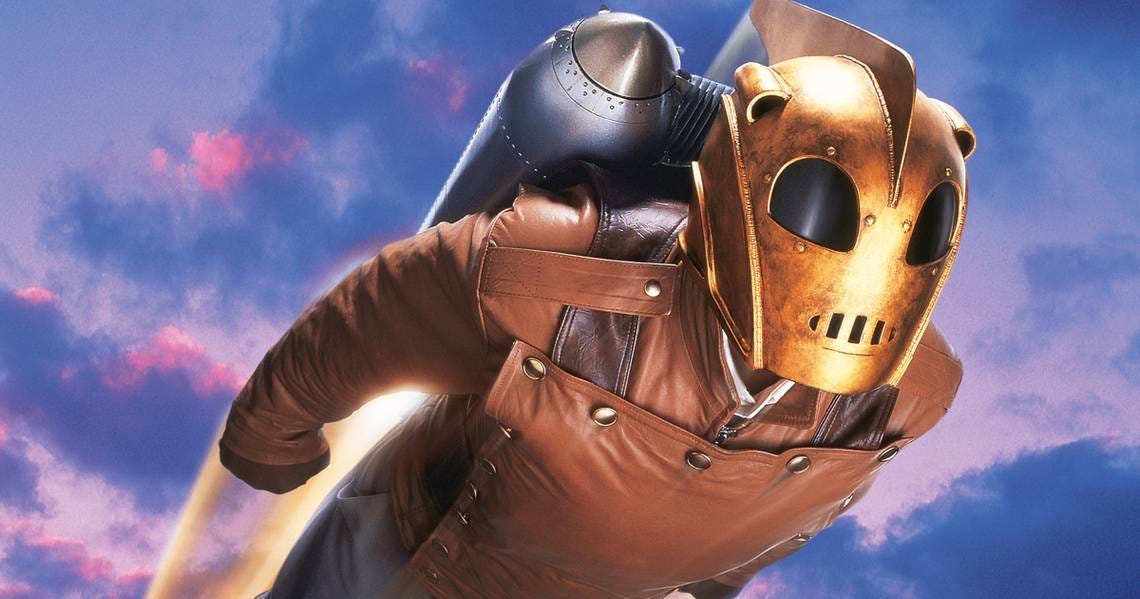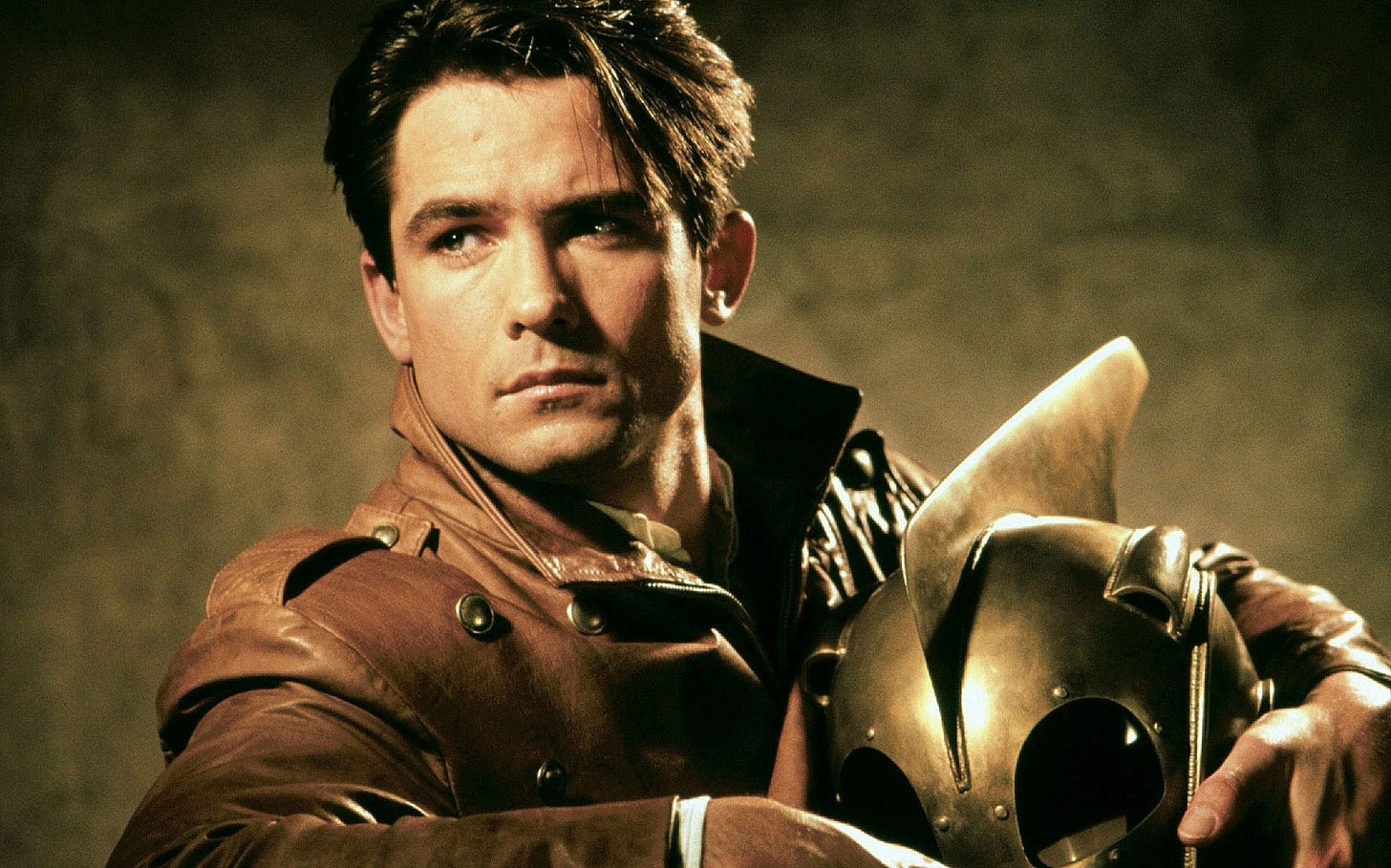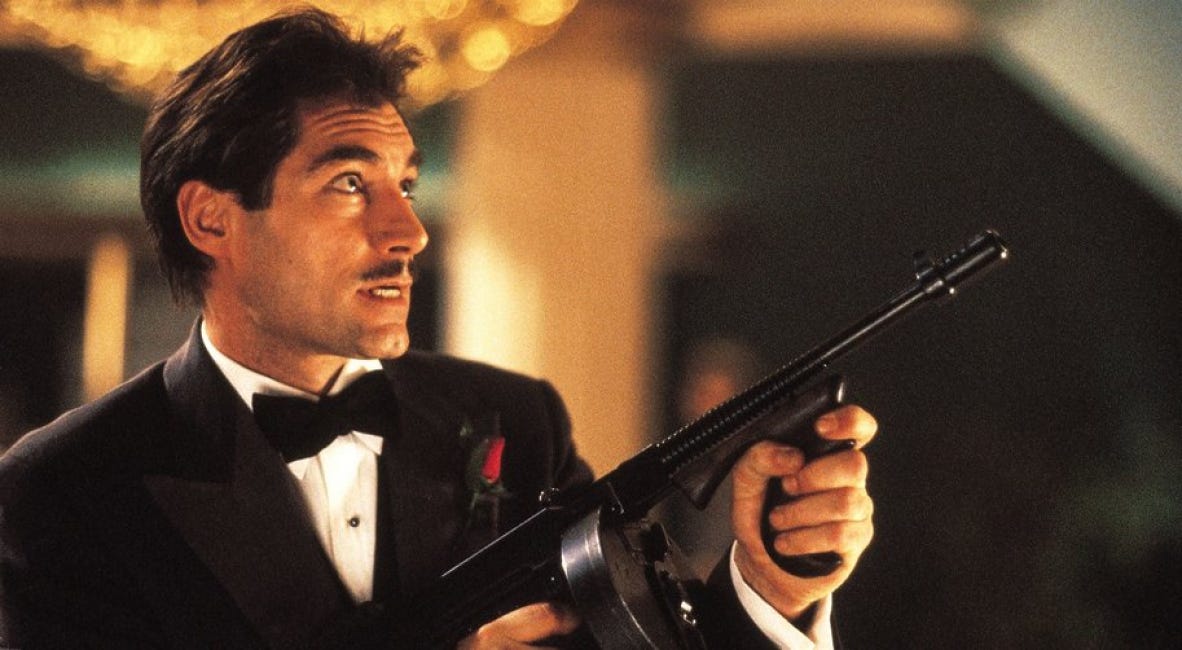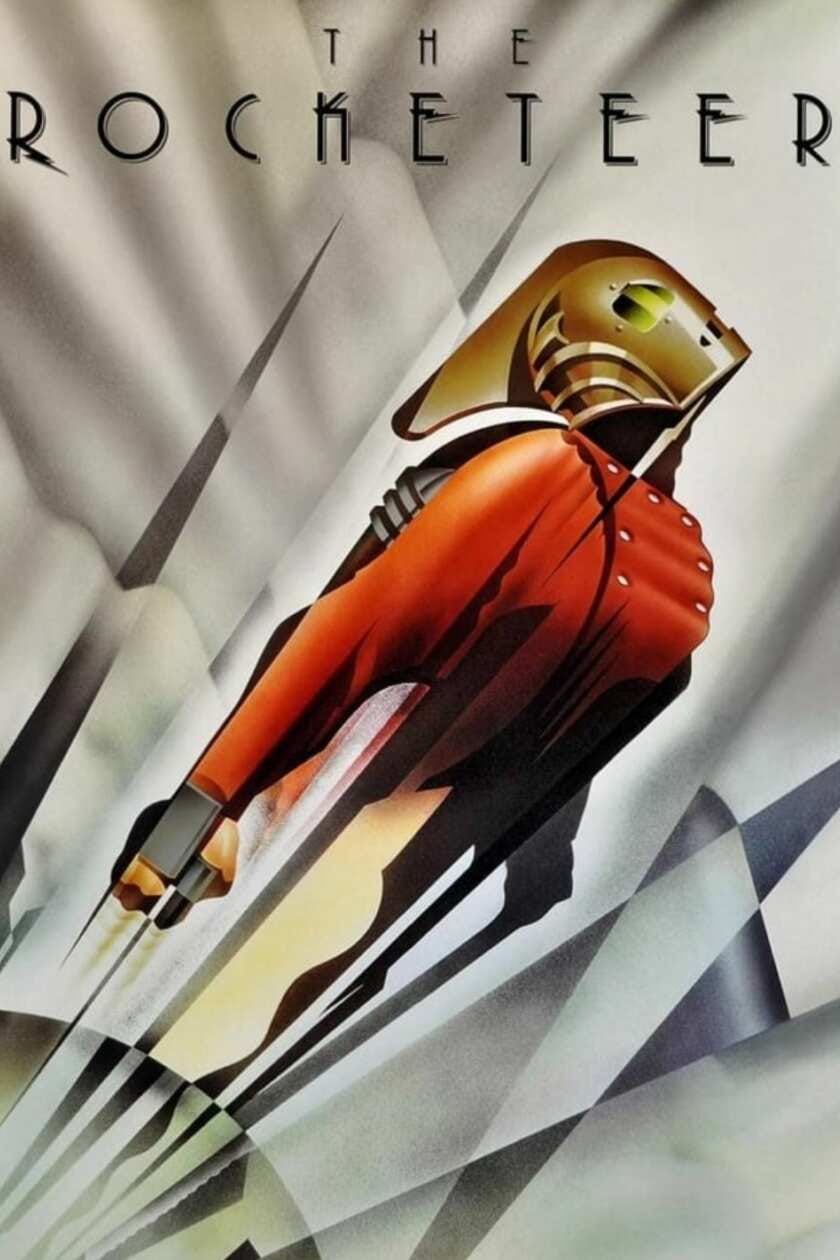The FFFEYIBA Project—1991
“...as the superhero blockbuster has become a cornerstone of mainstream moviemaking, it's become clear that ‘ The Rocketeer’ is a model of the form: breathless, energetic, and endlessly entertaining.”
For a reminder on the purpose and rules of the series, head on over to this post.
HM #1: Dead Again
Several posts back, I had reason to mention my affection for Kenneth Branagh. This week, he comes up once again, though this twisty neo-noir is a long stretch from the Shakespearian work that made him famous. Legend has it that he was inundated with scripts after the success of Henry V, and the vast majority of them were historical epics. But when he “read Scott Frank's screenplay aloud with his then-wife Emma Thompson, they were both gripped from the opening onward.” Roger Ebert loved it, saying that the film “will inspire comparisons to Welles and Hitchcock—and the Olivier of Hitchcock’s Rebecca. I do not suggest Branagh is already as great a director as Welles and Hitchcock, although he has a good start in that direction. What I mean is that his spirit, his daring, is in the same league. He is not interested in making timid movies.” Not sure I see as much Welles in the film as Ebert did, but there are certainly plenty of Hitchcockian vibes to go ‘round. And I think the “not being timid” praise feels like another way of describing his sincerity, which is what I love most about him as a director. I’m not blow away by him as an actor, but he’s good enough not to get in the way of his own film. The rest of the cast is great, especially Emma, Derek Jacobi, and Robin Williams, whose Dr. Cozy Carlisle is one of the most memorable things about the film. (Also, Patrick Doyle. Because of course he is.)
HM #2: Beauty and the Beast
Once again, I find myself harkening back to a (recently) previous post, where I noted that I consider Glen Keane’s work on The Beast to be truly extraordinary, and would even go so far as to call it the best thing the Mouse House has ever done. The eyebrows alone would make it worthy of an Honorable mention; they’re so expressive! The film was a watershed moment in the Renaissance Era, an enormous financial and critical success, and one of only three animated films to be nominated for Best Picture by the Academy (so far). I actually remember seeing it in theaters, and remember my head exploding during the ballroom sequence, as the camera whirled around with the couple, and soared through the chandelier. I didn’t know what CAPS was at the time, but I could see its fingerprints all over that scene; something was different. Even with those (now legendary) CGI-elements, though, the emotional power was undeniable. Some Disney folks have said that “the [CAPS-induced] otherness of the ballroom worked well with the heightened emotional moment,” and that seems right to me. Not all of it has aged gracefully, and much of it feels like it was written by a room filled with writers and survey-takers, rather than by a single person (or even a single creative vision). Still, when it works, it really hums along. HM for the HM: Listen to Alan Menken’s “Prologue” and then listen to “Aquariam,” from Camille Saint-Saëns’s “Carnival of the Animals.” Voilà! (Menken admits the influence, by the way.)
HM #3: Terminator 2: Judgement Day
This is James Cameron at his best, or very nearly so. (I say “very nearly” because Aliens is also great and probably could be described with equal veracity as Jimmy at his best, but I repeat myself, having already mentioned that film back in my 1986 post). The story’s riddled with plot-holes (as is the case with any time-travel film worth its salt), the “heroine” is about as unappealing as you can get (though I’m not sure if that’s the script’s fault or Laura Hamilton’s), and the dialogue is flat-out absurd (but I repeat myself, because Jimmy is a terrible writer). But before we get too hung up on “story” or “script” or “dialogue” or “heroes,” let’s remember that the action is jaw-droppingly spectacular. Truly, no one does action like James Cameron. If you watch it for no other reason than to enjoy the action, you’ll come away happy. Also, the clever twist that flips Arnie from villain to hero is a stroke of genius, especially for those folks who were watching the films as they came out. HM: The colon in the title amuses me.
And now, on to this year’s “winner.”
1991’s Selection: The Rocketeer, by Joe Johnston
As anyone who’s been following along with my project will surely know by now, I’m a real sucker for nostalgia. The way a film “hit” me when I first see it has an enormous impact on how I feel about it later, especially on the “Favorite vs. Finest Scale” we’re using in these posts. I think there are a couple of films upcoming that will make that point even more clearly than anything I’ve done yet—though The Rescuers Down Under selection had to come close to being definitive, right?—but even if there are “better days ahead,” there’s no way this year’s selection come as a surprise to anyone, since this film is steeped in nostalgia to its very core—an earnest-yet-light-hearted homage to a bygone era of Hollywood filmmaking that is both a reminder of what we’ve lost by shifting our cinematic focus from the fantastical to “the real” and an example of the very kinds of films it’s simultaneously praising and eulogizing.
The character of Cliff Secord is itself “an homage to the Saturday matinee serial heroes from the 1930s through the 1950s,” so the fact that the film captures the nostalgic tint and tone of that period so well is a tribute to Joe Johnston and his team. (It’s also pretty obvious why Kevin Feige settled on Johnston when looking to pick a director for Captain America: The First Avenger. Same cinematic DNA, in so many ways.)
Straight from the pages of a pulp comic from a past era, the Rocketeer recreates 1930's Hollywood, complete with gangsters, Nazi spies, and the growth of the Age of Aviation. Young pilot Cliff Secord stumbles on a top secret rocket-pack and with the help of his mechanic/mentor, Peevy, he attempts to save his girl and stop the Nazis as The Rocketeer.
In the interest of full disclosure, I must pause to admit that there’s a fairly obvious fly in the ointment: Billy Campbell. I don’t love his Secord, who is just too bland a hero for my tastes, especially in a film where Alan Arkin’s sidekick is so wisecrackingly good, Timothy Dalton’s villain is so deliciously broad, and Jennifer Connelly’s love interest, so classically gorgeous. Something about this one feels like a donut; sure, the emptiness in the middle is small and surrounded by sugar. But it’s still a bit of a letdown in a film that is otherwise such a pleasure to watch.
For years, I’ve experimented with “hypothetical recasting,” on the hunt for an actor who could have been a genuine focal point for Johnston’s love letter to old-school adventuring. And then I saw Captain America and recognized how much it looked and felt like The Rocketeer, except with a presence at the middle, instead of a donut hole. And I realized that Chris Evans was the kind of guy I’d been wanting. His Rogers is effective because he’s so sincere; so earnest. In comparison, I can’t help but feel that Campbell confuses earnestness and sincerity with inoffensiveness and insipidness.
But enough criticism, because this film’s got everything a young Joseph could possibly have wanted, back in the days when I was so earnestly cinematically self-educating (or is that self-medicating…?). It has the fashion and haberdashery and architecture that make so many WWII-era adventure films such a joy to watch. It’s got silly mob heavies that stand by their American roots when pushed to the edge—“I may not make an honest buck, but I'm 100% American, and I don't work for no two-bit Nazi!” It has the most lyric main theme James Horner ever wrote (and loads of other great tracks to go along with it). There’s a great, old-timey dance number in the South Seas Club, followed by an even better fight scene in the South Seas Club.
For the sincere cinephile who’s still able to tolerate a hint of silliness in his viewing, it has several painstaking (yet light-hearted) homages to one of Old Hollywood’s most effortlessly-charismatic actors, Errol Flynn, as well as to some of Flynn’s finest swashbuckling roles. (If you don’t love the scene where Johnston pays simultaneous tribute to Golden Era moviemaking and to the swordfight finale of The Adventures of Robin Hood, I’m not sure we can be friends.)
In fact, this one’s got everything a much-less-young Joseph could want, as well. It’s exactly what the similarly-inspired Sky Captain and the World of Tomorrow so desperately wanted to be—too mean?—but with loads more heart and humor and gosh-darn fun. Even the film’s poster (which I’m putting in its entirety at the bottom of this post because it’s too lovely to chop up) feels perfectly “old-timey.”
Finally, while this film might be just a touch too corny (and/or too zany) to achieve true greatness, I can promise that you’ll have a ton of fun getting to wherever it is that it’s going. Johnston’s film is a blast from the past and a breath of fresh air, all at once, and I’m sorry there aren’t more like it.








